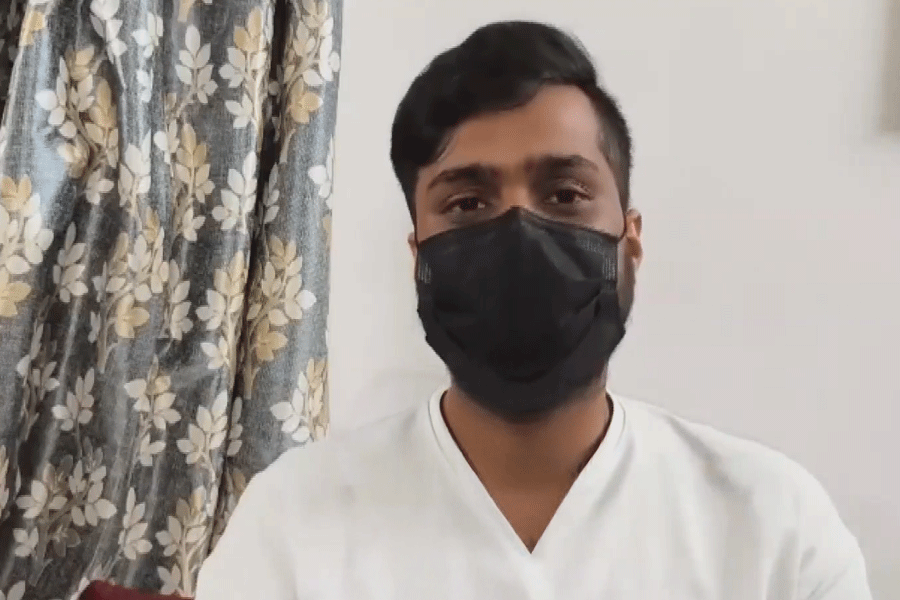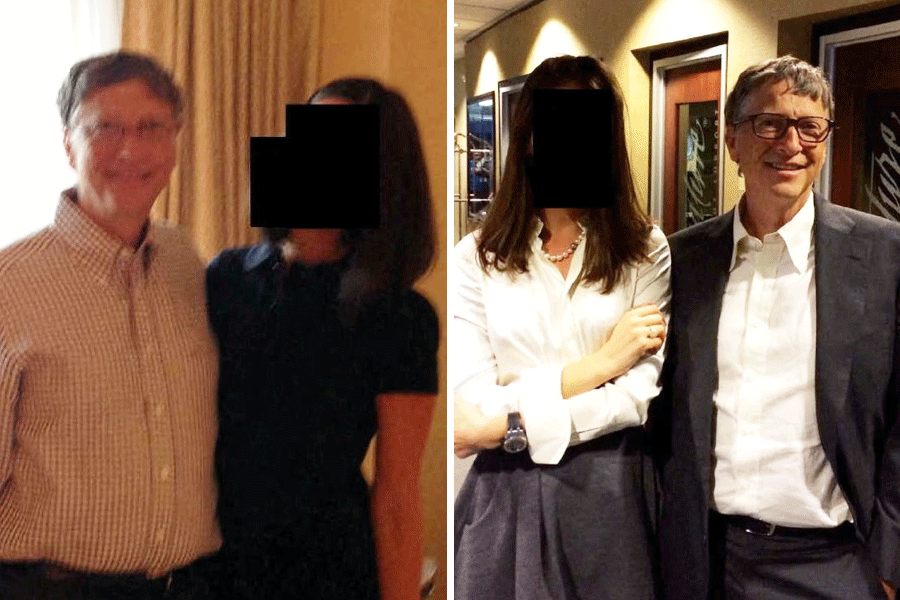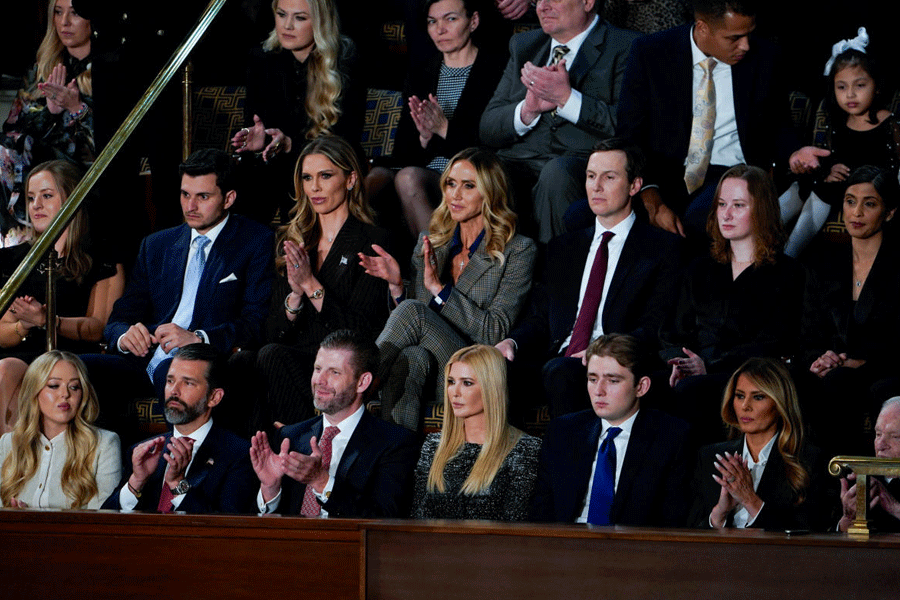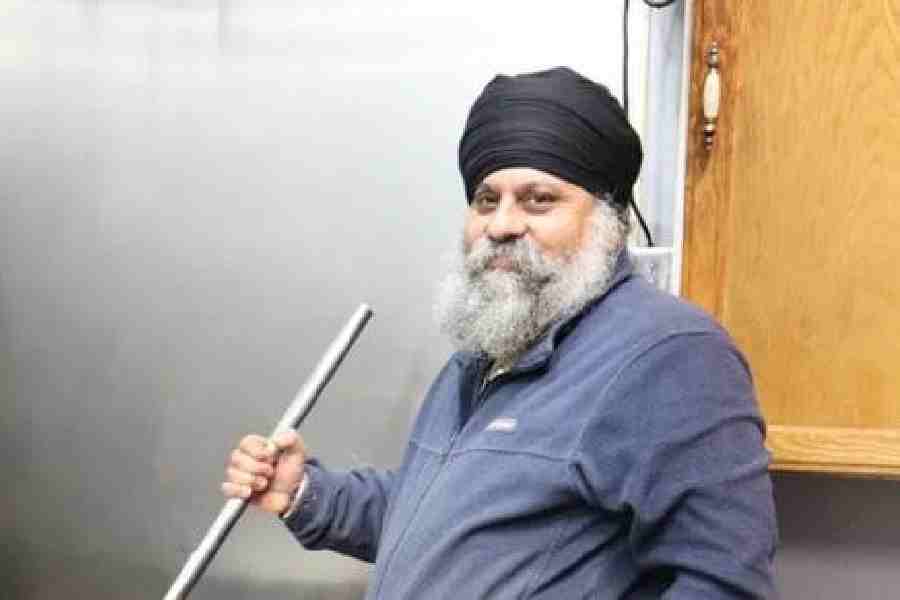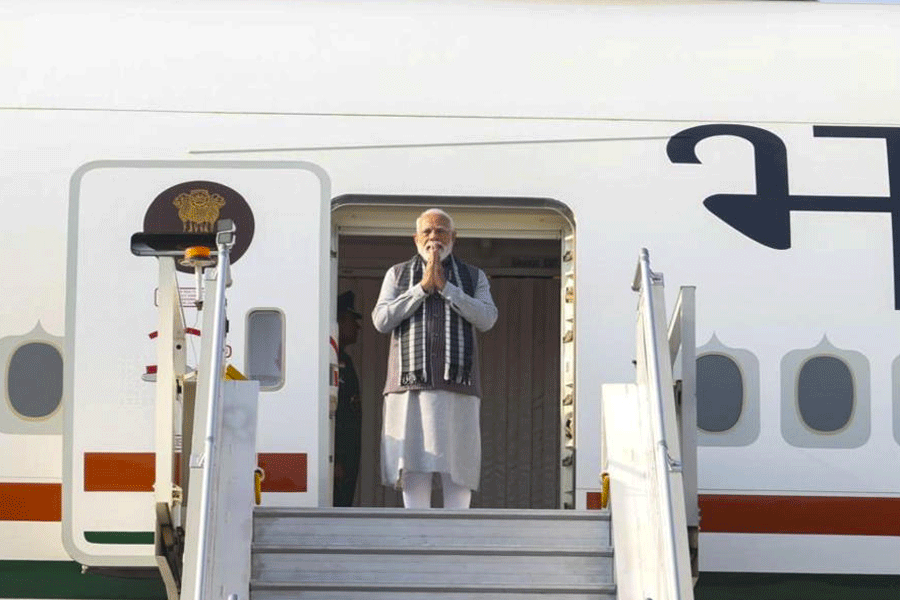 |
 |
The Cavalli suits have made way for spotless white khaddar. His listeners are not the who’s who of India Inc but awestruck masses in a mofussil town.
He no longer pitches as zealously for liberalisation of the Indian economy; his priority now is salvaging Bengal’s sagging financial position.
But Amit Mitra says he is at ease with the changes as, leaving behind some of the comforts of his former lifestyle, the Ficci secretary-general turned Trinamul candidate prepares to challenge Bengal finance minister Asim Dasgupta from Khardah, barely 20km from the city.
“I am ready to fight the battle as a soldier in Mamata Banerjee’s army,” says the outsider catapulted into the heart of Bengal politics, from a constituency that can easily be described as Bengal’s Leningrad.
Known for its Raash Mela, a Krishna temple along the Hooghly, and one of the oldest Ramakrishna Mission schools, Khardah has been a Left stronghold since 1977. Its voters, dominated by government employees, professionals and school and college teachers, have been electing Dasgupta since 1987.
The finance minister, a PhD in economics from the Massachusetts Institute of Technology, won by a margin of 42,305 votes in the 2006 Assembly elections. But such past statistics do not worry Mitra, who taught economics at Franklin and Marshall College in the US before joining Ficci in 1994.
“I have joined politics because of Mamata. There is a wave in her favour and that will see me through,” he smiles.
If Mitra wins, he would have to quit the safety of his old job that has offered him advisory positions in 20-odd public sector companies. But the decision was not difficult, he tells The Telegraph.
“The opportunity cost of leaving all that is minuscule if you compare it with what I can do for Bengal,” the candidate says as he readies to address his first mass meeting: Thursday’s karmi sabha (workers’ session) at the Government Colony grounds.
It’s his first day out with Trinamul foot soldiers but it has already given him a glimpse of the “wave” he talks about. More than 2,500 people have braved an early evening squall to listen to his debut speech. They have willingly walked away from their TV sets that are beaming the India-Australia World Cup game live.
After a brief introduction by local MP Saugata Roy — Mitra’s batch-mate at Presidency College — the candidate with the lean, 5-foot-11 frame strides up the rostrum.
For a moment he looks a little unsettled as his ears, used to decorous applause at chamber meetings, are greeted with chants of “Amit Mitra jitchhey, jitbey (Amit Mitra will win)” and “Amit Mitra ke bipul vote-e joyi korun (hand a thumping victory to Amit Mitra)”.
He falls back on his familiar chamber style as he begins his speech, thanking the other dignitaries on the dais. But the quiver in his voice soon disappears and boardroom gentility is cast away. Mitra launches into an attack on the finance minister, accusing him of pushing Bengal’s economy to the brink of bankruptcy.
“The Trinamul manifesto has highlighted how Bengal is lagging behind other states. The finance minister (Dasgupta) has something to say about any and every development —so why doesn’t he utter a word on what we have said in the manifesto?” he asks.
Mitra spells out his chargesheet against Left rule — industrial decline, poor performance in the health sector, lack of opportunities in higher education — and claims that a great turnaround awaits Bengal under Mamata.
Could he have afforded to be as critical of the Left as the secretary-general of Ficci? After all, the environment of political correctness at industry associations leaves little room for office-bearers to criticise governments.
Mitra, though, replies that he has had a history of communist-bashing since his days as a member of the Presidency College Students’ Organisation. He also rebuts sceptics’ concerns that he is an apolitical person.
He may be new to politics, he says, but politics is in his blood.
“My father (Haridas Mitra) was Deputy Speaker of the Assembly and I used to accompany him during his campaigns. My maternal grandfather (Suresh Chandra Bose) was Netaji Subhas Chandra Bose’s elder brother, and my father was part of the secret service team of the Azad Hind Fauj. My mother took over charge of the secret service after my father,” Mitra says.
He can’t help adding a titbit: “There is a railway station, Belanagar, in her name.”
 |
| Amit Mitra with wife Meera Balakrishnan at the karmi sabha (Sanjoy Chattopadhyaya) |
Political roots taken care of, the Calcutta Boys School alumnus briefly rolls out his CV, aware that academic credentials can mean something to voters.
“I was taught by Prime Minister Manmohan Singh,” Mitra mentions, trying to even scores with his opponent, who had the legendary, Nobel-winning economist Paul Samuelson as his teacher at the MIT.
Mitra was also taught by Amartya Sen, Sukhamoy Chakraborty and K.N. Raj at Delhi School of Economics. After getting a master’s from DSE, he did his PhD from Duke University in the US.
Saugata Roy had already set the stage for a head-to-head comparison with Dasgupta by introducing Mitra as the next finance minister of Bengal, though the man himself is a little coy.
“I don’t know what role she (Mamata) has in mind for me. But I am willing to do whatever she asks me to do,” he says.
“We are lucky to have a candidate like him from Khardah,” says Sukantha Banik, president of the town Congress, as men and women among the audience stand up to click Mitra’s pictures with their camera phones.
Between Thursday and Sunday morning, Khardah residents have got several such opportunities with Mitra crisscrossing the constituency of over 1.66 lakh voters.
The Left received its first jolt here in the 2009 Lok Sabha polls when Trinamul’s Dum Dum candidate Roy secured a lead of over 1,400 votes from the Khardah Assembly segment. In the municipal elections the following year, Trinamul cemented its position by wresting the municipal board from the Left.
Although the Left supporters are regrouping to try and ensure another term for Dasgupta, the bigger challenge for Mitra is the discontent among a section of Congress and Trinamul supporters over their parties’ alliance.
Mitra, though, brushes away the chances of sabotage. Yet his plea at the workers’ meeting seems to capture some of his worries.
“Our main aim is to defeat the CPM and make Mamata the chief minister of Bengal. Even if we have differences, we should fight together,” he says.
As the boss of a leading industry chamber, Mitra had learnt the art of getting along with rival business houses and keeping them under the Ficci fold.
Although much in his life has changed in the past few days, he will have to fall back on those old skills to ensure his victory, Trinamul sources say.


